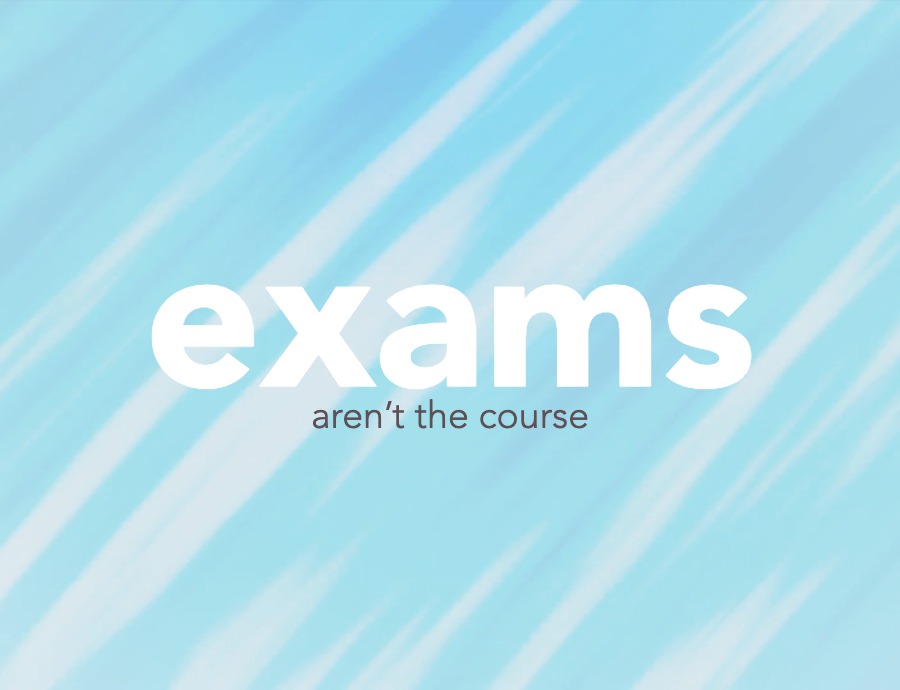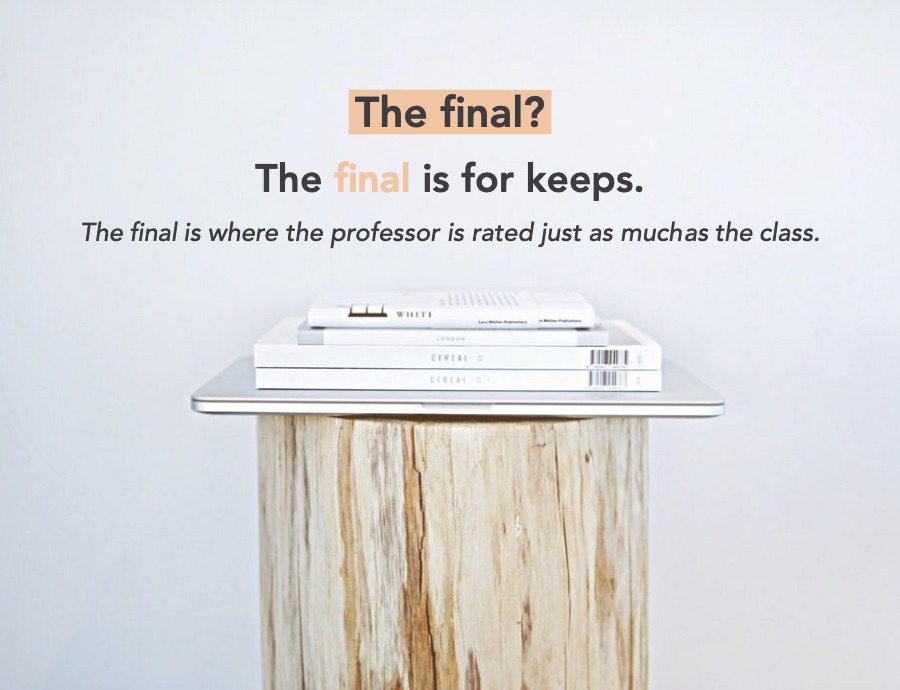First-year students can be overwhelmed by the sheer amount of material they’re taught. They look at the course and think “How can all of this possibly be on one exam?” To which the most obvious answer is: it can’t. And it isn’t. The exam is a much smaller, simpler, and more manageable thing than the course. The earlier you realize that the better you’ll do at both!
A first-year university course isn’t just teaching you the subject, it’s training you in the subject, helping you to think in new ways, starting some ideas about your chosen field, instructing you in how to work to university standards, as well as laying the foundations for future years where you’ll use whole first modules as mere references in much bigger subjects. That’s a lot of work!
A first-year exam is a way to process hundreds, sometimes thousands of students at once in only a few hours. It’s a quick check. Because testing months of work in a couple of hours of examination has to be a quick check. It uses standard questions, simplified situations, and the same ideas often come up year after year, because the professors are busy too. Some first year exams even use multiple choice questions. Which tells you everything you need to know about how deeply they’re testing any understanding (about as deep as a teaspoon). Multiple choice questions can’t check your understanding or your work. All they can do is quickly scan through thousands of exams in a few hours so that humans don’t have to. Which is a first year exam’s function.
Exams used to be one-on-one, or one student interrogated by a panel of professors, back in the days when university was only for the most educated of nobles who wanted to send their sons (like everything else they were pretty sexist for most of history) somewhere for a few years to look smart. It was a truly terrible system and not one anyone wants to go back to. Especially if they’re anyone other than a rich noble son.
So start looking at how the exam is different from the course. Check if those devious derivations or complex integration questions are actually asked on past exams, or if they only appear on assignments. Find out which complicated questions are often asked, and prepare those specifically. They then become your special weapons (worth a lot of marks when they come up!) instead of a problem.
We’re not saying the exam is easy. It’s not! But it’s not everything either. It simply can’t be as complicated as an entire course. So don’t be intimidated by the month of assignments and homework. Remember: the course is all about the journey, not the destination. The journey is about becoming better at something. You just need to clear the exam every once in a while as well. And that’s a smaller, easier task.
A first-year university course isn’t just teaching you the subject, it’s training you in the subject, helping you to think in new ways, starting some ideas about your chosen field, instructing you in how to work to university standards, as well as laying the foundations for future years where you’ll use whole first modules as mere references in much bigger subjects. That’s a lot of work!
A first-year exam is a way to process hundreds, sometimes thousands of students at once in only a few hours. It’s a quick check. Because testing months of work in a couple of hours of examination has to be a quick check. It uses standard questions, simplified situations, and the same ideas often come up year after year, because the professors are busy too. Some first year exams even use multiple choice questions. Which tells you everything you need to know about how deeply they’re testing any understanding (about as deep as a teaspoon). Multiple choice questions can’t check your understanding or your work. All they can do is quickly scan through thousands of exams in a few hours so that humans don’t have to. Which is a first year exam’s function.
Exams used to be one-on-one, or one student interrogated by a panel of professors, back in the days when university was only for the most educated of nobles who wanted to send their sons (like everything else they were pretty sexist for most of history) somewhere for a few years to look smart. It was a truly terrible system and not one anyone wants to go back to. Especially if they’re anyone other than a rich noble son.
So start looking at how the exam is different from the course. Check if those devious derivations or complex integration questions are actually asked on past exams, or if they only appear on assignments. Find out which complicated questions are often asked, and prepare those specifically. They then become your special weapons (worth a lot of marks when they come up!) instead of a problem.
Exams aren’t the course. They’re much easier.
We’re not saying the exam is easy. It’s not! But it’s not everything either. It simply can’t be as complicated as an entire course. So don’t be intimidated by the month of assignments and homework. Remember: the course is all about the journey, not the destination. The journey is about becoming better at something. You just need to clear the exam every once in a while as well. And that’s a smaller, easier task.








